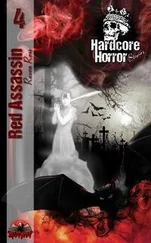He was trembling and shaking so violently that I was obliged to rise and lay a restraining hand upon his shoulder. “Delusions of magnificence,” I murmured, “undoubtedly induced by a malignant inferiority-complex.”
“It is not that,” he snapped. “I am a poet, an artist, and I have within me a tremendous force that must be expanded. The world has denied me self- expression through legitimate channels and now I am justified in hating the world. Let society beware!”
He threw back his head and laughed. His hilarity seemed to increase the tension that had somehow crept into the room.
“Call me a madman if you will,” he exclaimed, “but I crave power. I can not rest until my name is on a million lips.”
“A conservative course of treatment—” I began.
“I want no treatment,” he shouted, and then, in a less agitated voice, “You would be surprised, perhaps, if I told you my name!”
“What is your name?” I asked.
“Arthur St. Amand,” he replied, and stood up.
I was so astonished that I dropped my cigar. I may even add that I was momentarily awed. Arthur St. Amand!
“Arthur St. Amand,” he repeated. “You are naturally amazed to discover that the pale, harassed and half-insane youth that you see before you was once called the peer of Newton and Leonardo Da Vinci. You are amazed to discover that the starving lad with an inferiority-complex was once feted, by kings and praised by men whose lightest words will go thundering down Time. It is all so amazing and so uproariously funny, but the tragedy remains. Like Dr. Faustus I once looked upon the face of God, and now I’m less than any schoolboy.”
“You are still very young,” I gasped. “You can’t be more than twenty-four.” “I am twenty-three,” he said. “It was precisely three years ago that I published my brochure on etheric vibrations. For six months I lived in a blaze of glory. I was the marvelous boy of the scientific world, and then that
Frenchman advanced his theory ”
“I suppose you mean Monsieur Paul Rondoli,” I interrupted. “I recall the sensation his startling refutation made at the time. He Completely eclipsed you in the popular mind, and later the scientific world declared you a fraud. Your star set very suddenly.”
“But it will rise again,” exclaimed my young visitor. “The world will discuss me again, and this time I shall not be forgotten. I shall prove my theory. I shall demonstrate that the effect of etheric vibration on single cells is to change'—to change—.” He hesitated and then suddenly shouted, “But no, I shall not tell you. I shall tell no one. I came here tonight to unburden my mind to you. At first I thought of going to a priest. It is necessary that I should confess to someone.
“When my thoughts are driven in upon themselves they become monstrous. I have an active and terrible brain, and I must speak out occasionally. I chose you because you are a man of intelligence and discrimination and you have heard many confessions. But I shall not discuss etheric vibrations with you. When you see it you will understand.”
He turned abruptly and walked out of the room and out of my house without once looking back. I never saw him again.
2. Diary of Thomas Shiel, Novelist and Short-Story Writer
]uly 21. This is my fourth day at the beach. I’ve already gained three pounds, and I’m so sunbaked that I frightened a little girl when I went swimming this morning. She was building sand castles and when she saw me she dropped her shovel and ran shrieking t6 her mother. “Horrible black man!” she shouted. I’suppose she thought I was a genie out of the Arabian Nights. It’s pleasant here — I’ve almost got the evil taste of New York out of my mouth. Elsie’s coming down for the week-end.
July 22. The little girl I frightened yesterday has disappeared. The police are searching for her and it is generally believed that she has been kidnaped. The unfortunate occurrence has depressed everyone at the beach. All bathing parties have been abandoned, and even the children sit about sad-eyed and dejected. No footprints were found on the sands near the spot where the child was last seen…
July 23. Another child has disappeared, and this time the abductor left a clue. A young man’s walking stick and hat were found near the scene of a violent struggle. The sand for yards around was stained with blood. Several mothers left the New Beach Hotel this morning with their children.
July 24. Elsie came this morning. A new crime occurred at the very moment of her arrival, and I scarcely had the heart to explain the situation to her. My paleness evidently frightened her. “What is the matter?” she asked "you look ill.’ “I am ill,” I replied. “I saw something dreadful on the beach this morning.” “Good heavens!” she exclaimed; “have they found one of the children?” It was a great relief to me that she had read about the children in the New York papers. “No,” I said. “They didn’t find the children, but they found the body of a man and he- didn’t have a drop of blood in him. He had been drained dry. And all about his body the investigators found curious little mounds of yellowish slime — of ooze. When the sunlight struck this substance it glittered.” “Has it been examined under a microscope?” asked Elsie. “They are examining it now,” I explained. “We shall know the results by this evening.” “God pity us all,” said Elsie, and she staggered and nearly fell. I was obliged to support her as we entered the hotel.
July 25. Two curious developments. The chemist who examined the jellyfish substance found near the body on the beach declares that it is living protoplasm, and he has sent it to the Department of Health for classification by one of their expert-biologists. And a deep pool some eight yards in diameter has been discovered in a rock fissure about a mile from the New Beach Hotel, which evidently harbors some queer denizens. The water in this pool is as black as ink and strongly saline. The pool is eight or ten feet from the ocean, but it is affected by the tides and descends a foot every night and morning. This morning one of the guests of the hotel, a young lady named Clara Phillips, had come upon the pool quite by accident, and being fascinated by its sinister appearance had decided to sketch it. She had seated herself on the rim of the rock fissure and was in the act of sketching in several large boulders and a strip of beach when something made a curious noise beneath her. “Gulp,” it said. “Gulp!” She gave a little cry and jumped up just in time to escape a long golden tentacle which slithered toward her over the rocks. The tentacle protruded from the very center of the pool, out of the black water, and it filled her with unutterable loathing. She stepped quickly forward and stamped upon it, and her attack was so sudden that the thing was unable to flip away from her and escape back into the water. And Miss Phillips was an amazingly strong young woman. She ground the end of the tentacle into a bloody pulp with her heel. Then she turned and ran. She ran as she had not run since her “prep” school days. But as she raced across the soft beach she fancied she could hear a monstrous, lumbering something pursuing her. It is to her credit that she did not look back.
And this is the story of little Harry Doty. I offered him a beautiful new dime, but he told it to me gratis. I give it in his own words.
“Yes sir, I’ve always knowed about that pool. I used to fish for crabs and sea-cucumbers and big, purple anemones in it, sir. But up until last week I allus knowed what I’d bring up. Onct or twice I used to get somethin’ a bit out o’ the ordinary, such as a bleedin'-tooth shell or a headless worm with green suckers in its tail and lookin’ like the devil on a Sunday outin’ or a knowin’-lookin’ skate what ud glare and glare at me, sir. But never nothin’ like this thing, sir. I caught it on the top o’ its head and it had the most human-lookin’ eyes I ever saw. They were blue and soulless, sir. It spat at me, and I throws down my line and beats it. I beats it, sir. Then I hears it come lumbering after me over the beach. It made a funny gulpin’ noise as if it was a-lickin’ its chops.”
Читать дальше












